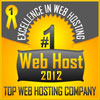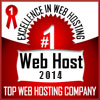A good managed Web hosting provider should have the people, systems and resources that are required to control a complex server environment.
Managed hosts are paid to maintain and exercise control over every facet of a hosting operation. They should manage the provisioning, deployment, testing, and ongoing management of all networking devices, including routers, switches, SSL accelerators, firewalls, routing tables and virtual private networks. The host should also monitor all customer hardware, such as servers, to resolve any issues related to them in order to maintain the highest levels of performance and uptime.
A main characteristic for a managed host is quality of equipment and service. Servers and any other hardware should be top of the line, and backed by extensive warranties and on-site service contracts. The hosting provider should not only emphasize hardware, but also attend to the way software is deployed. The provider should manage the installation of the operating system and supporting software. This includes the provisioning, testing and deployment of security patches, service packs, upgrades and revisions on a continual basis.
The ideal managed hosting provider will also look after the installation and maintenance of server applications, including data administration, backup and migration. It should also monitor log files to assess site performance, traffic patterns, disk space usage and other considerations to predict potential server weaknesses and even failures. Consumers of managed services should also check to determine whether their hosts can fulfill every detail of the managed deployment, from server and equipment procurement to quick implementation of the new technologies.
Systems and resources are not the only major considerations that consumers should make when choosing a managed host. You will also want to consider whether the sales and technical staff are knowledgeable enough to entrust your online business to.
A host’s human resources are often the most important consideration when picking a service provider, since their people will be interfacing with you and your equipment more often than in a typical low-end, shared hosting situation. As a consequence, you will want to make sure that the people you deal with at the provider are both qualified and experienced. Qualified technical people will have certifications in operating systems, routing equipment and other applications. Sales and customer support staff will have a wealth of experience from spending years in the industry.
In most managed hosting situations, a dedicated account manager is allocated to the customer. This allows both the company and the consumer to have a singular point of contact for any sale request or technical support inquiry. Ideally, the dedicated account manager should be immediately available during regular business hours and have an available alternate at all other times. A first-rate managed host will also allow a consumer to quickly escalate any service request direct to management. With a more complex host, management should always be more accessible to customers, considering the significantly greater premiums paid by managed hosting customers.
The good managed host, in a word, should be proactive. It should seek not only to provide bare-bones equipment and connectivity, but also to actively manage that equipment and connectivity in order to provide you with the highest level of efficiency from the service. That is the main qualification you should seek from your managed host…









